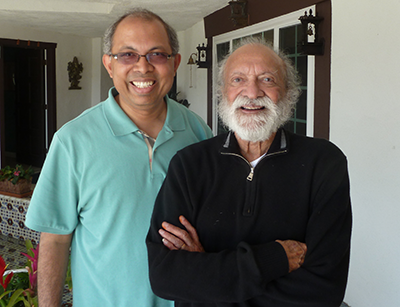Quality & Me
Subir shares his own personal efforts to work toward continuous improvement within his own community, among his friends and family.
One of the most memorable days of my life was meeting my favorite musician, Pandit Ravi Shankar, the legendary Sitar Maestro.

Nearly half a century earlier, George Harrison of The Beatles traveled to India to learn sitar from him. A friendship formed, and it reshaped aspects of The Beatles music. Likewise, Ravi’s music had a huge impact on my own life.
Ravi invited me to his home after reading one of my books; he wanted to discuss the concept of quality. We talked about his music, and our own passions. We were supposed to meet for half an hour, but ended up talking for 3 hours. He was kind to give me lots of music CDs, DVDs, and books as a parting gift.
In our conversation, he wanted to know what ‘quality’ means to me. I was surprised by his question and his eagerness to learn. I responded, “Quality to me is Ravi Shankar.”
He was pleasantly surprised by my response and asked me why. I told him, his music gives me joy when I am down; similarly when I am alone on my own, his music gives me spiritual feelings. His music made a difference for me. He is an inspiration to me.
He was so humbled by my answer, but then told me that he still did not compose ‘quality’ music. He said he was still working on it.
Within six months of our meeting, I watched with my family his last live performance in Long Beach, CA, where he played the sitar with an oxygen tube attached to his nose. I vividly remember his promise to me about composing music of ‘quality.’
The difference he made to millions of people of my birthplace during the 1971 liberation war of Bangladesh, I will never forget.
Ravi Shankar is one of the reasons I encourage you to make a difference, and to be a difference in someone’s life.
Subir
P.S. My new book, The Difference: When Good Enough Isn’t Enough, comes out in February 2017. You can preorder it here.


















